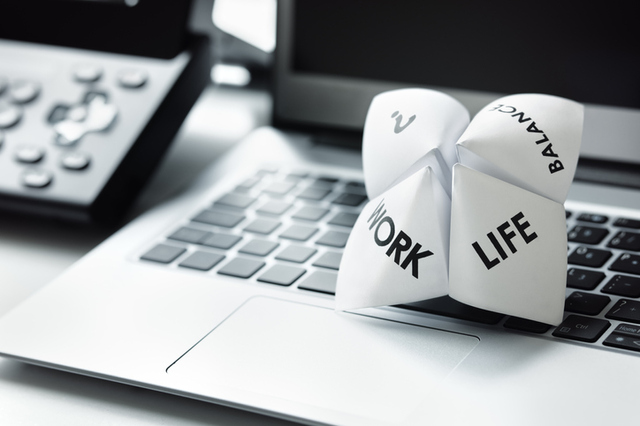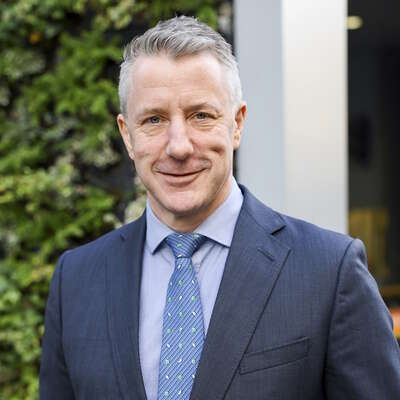As part of the LEADERS in Crisis Series, Nick Robeson, Managing Partner for Boyden UK & Ireland interviewed Cheryl Agius, who in December 2019 joined the Board of Saga as CEO for their Insurance Business.
Prior to joining Saga PLC as CEO Saga Insurance, Cheryl spent 9 years with Legal and General, most recently CEO of the firm’s General Insurance business. She set up the US Retirement business, led the UK Strategic Retirement business and more recently CEO of the General Insurance which became recognised in the market as a data driven, digitally-led business. In her earlier career, she has held senior leadership roles with AON Hewitt, Lloyds TSB and Willis Towers Watson. Cheryl is a Fellow of the Institute of Actuaries.
The focus of the interview was on Cheryl’s leadership, the organisation’s response to Covid-19, and the role she plays as a leading female CEO.

Robeson: You have had a fascinating start to your new role at Saga, walking straight into the most significant pandemic the modern world has seen. What was your experience of how your team responded to lockdown?
Agius: The firm reacted tremendously well. As you would imagine, most organisations have got detailed business continuity plans in place, but none will have planned for a total countrywide lock down. So, you take one step at a time and projects that would typically take years to implement for many organisations have been implemented within weeks.
For Saga we had an intense couple of weeks where we really had to put those business continuity plans to the test and get over 2000 staff working remotely from home. I have to say, a tremendous job was done by all our colleagues with full focus on serving our customers and we were very quickly fully operational.
Robeson: Recognizing that you were new with no doubt a planned approach to how you were going to lead the organisation through its own period of transformation, have you had to change your leadership style to lead during a crisis?
Agius: Like all of these things, you have to adapt, and you have to adapt very quickly. One minute you're having face to face contact and then very rapidly you are having to solve complex business problems remotely by video.
For me there were two angles. It's the whole remote working and making sure that you have an operationally resilient business, and then you step straight into how you solve your business problems remotely,
In fairness, the real testament to all of this is how we chose to mass communicate in a very different way to all your employees. You are not meeting them face to face and there is no personal contact so to do that remotely has been a step change in learning for the business.
Robeson: Was the process of moving people to a virtual environment relatively straightforward, or was it more painful than you expected?
Agius: Like all of these things, you are never quite sure until you come out the other end and no doubt, we will review that at some stage in the future. We had the added benefit as an organization of having a very small proportion of our workforce already home enabled prior to coming into Covid-19. We had the telephony and IT infrastructure in place giving us a bit of a head start
The challenge clearly was to scale this up within a fortnight. Critically, at the same time we needed to ensure business continuity because a large part of our customer base would be categorized as vulnerable and were going through very significant changes in their own lives. We had to maintain contact with them and that was a critical part of that journey.
Robeson: We are entering the phase where lockdown in Europe begins to be eased. Have you begun to put a plan of how you bring your workforce back together again and do you ever see an environment where it's business as usual again in large offices?
Agius: When countries go through a significant event, what we do know is things are never going to be quite the same again. The most important thing for any future business model is to look at how you take your learnings and adapt going forward. For Saga, first and foremost is our colleague’s safety in the context of any work environment. That is our priority.
Nobody knows how this is going to unfold over the coming weeks, months and maybe years. So the challenge for all of us at a leadership level is that we know life is going to be different, so what do we choose to focus our attention on first. Its reasonable to say that it won't be the same again. What we are looking at very closely is how we take some of that accelerated learning and evolve our business model very quickly into changes that really add value to our business going forward. That is something we will be involved in over the coming months as we keep our colleague’s health a priority.

Robeson: There has been a lot of talk about mental health and well-being. As CEO, is that an area of concern across your entire stable of employees and are you providing any particular support?
Agius: There has clearly been a lot of focus on mental health now for a number of years and this crisis has brought it to the forefront of the table. We have colleagues and customers who are in periods of isolation, coping with unforeseen circumstances at home and trying to manage that very new work life balance.
We have put in place a comprehensive program around mental health well-being involving outside partners who can offer that support. We have brought in guest speakers who have gone through some of these challenges themselves and there is nothing more important than hearing it from people who have faced these challenges directly, and talking about this topic a lot more openly.
At the heart of all of this is the real step up in communication and touch points for our colleagues and our customers. We have also seen and responded well to our customers who have felt isolated and vulnerable and spending longer on the phone at these uncertain times.
Robeson: Have you had to change your communication style with the different groups of stakeholders?
Agius: What this experience has done is force that digital journey for customers and colleagues at a pace that in yesterday's world may have taken another couple of years to achieve. But whilst we focus clearly on digital transformation there is at the end of the day a customer, often at the end of the phone who simply needs to speak with someone about their own situation. Getting that balance right is paramount to the success of our business.
We also set up a “Not Going Out Club” for our Saga customers which gives them an opportunity to tap into lifestyle topics they might wish to think about when they are going through periods of isolation along with delivering new, relevant content online. So we have in a short period of time done a multitude of things to really make this as easy as possible for our customers.
Robeson: Looking at your direct leadership team, how are you holding yourselves together?
Agius: Having simple regular touch points every day is essential. It has provided an environment to come together, to solve business decisions and to check in with people emotionally. We no longer have the ability to see somebody walking down the corridor catch up across the desk for a casual conversation.
It's also making the extra effort to have some downtime by creating opportunities for purely social catch ups as you would do in any work environment. This is important to also check in on how everyone is coping with the stresses and strains of this new living environment.

Robeson: Turning to the wider industry, acceleration of digital capability and disruption is number one on most Insurance CEO’s agendas. How can the insurance market use technology such as analytics and automation to their advantage and does this crisis accelerate adoption?
Agius: If we if we take a step back, customers don't buy technology, they buy solutions that make their lives easier. The retail, media, and banking sectors have been strengthening their digital capability for some time now and are prepared for what is coming down the line. That said, those organisations who for whatever reason have failed to keep up are clearly some of those businesses that are probably struggling through this experience and will know now that to survive they will need to accelerate their digital transformation and investment in technology.
Robeson: What do you think will be the post Covid effects economically, digitally and societally for the industry?
Agius: A significant event like this will change many parts of our lives. It will accelerate digital across a customer base and across the industry as a whole, it will also have a step- change in how consumers buy because as their needs change they will want to dial that up and down in line with their needs very quickly and easily. I see a step change towards more flexible on demand solutions. And finally, particularly across the insurance industry with an event such as Covid there will be some scenarios where customers haven't quite understood what they have been buying be they an individual household or business leading to an even greater focus on transparency throughout the insurance industry.
Robeson: Many leadership qualities will surface during this Covid era. Where have you seen superior leadership either in the Public or Private sector
Agius: What's really interesting is those organizations who clearly put the people first. Those that have adapted their business model to support the government and the health industry through this process be that to supply a service or a product. You have to give huge credit to those organizations in manufacturing who've been able to come together to meet those different demands. That is where you really start to understand those leaders who have been able to adapt through something as large as this.
Robeson: You are a prime example of a working parent. How have you managed your extremely challenging role as CEO with just as complex a home environment. What advice would you give about how employers should specifically support working parents to return to work?
Agius: I am just one of many out there who are all in the same situation. Literally overnight, people have had to respond to finding themselves in a position where they have had to become teacher, cleaner and dinner lady along with a whole host of other things whilst maintaining business as usual. That has been challenging for many many working parents.
I think broadly organizations have been very understanding, offering that flexibility to enable people to continue to operate in such a way. It has certainly been challenging but like everybody else, we must work through this. It’s important we put it into perspective. There's a lot of people out there who are fighting either to save lives or indeed their own life. Our challenges become relatively minor in that context.

Robeson: As the workforce begins to head back to the office, have you any advice to employers about how they create a flexible environment for working parents?
Agius: I've been very fortunate over the years to work for employers where flexibility has been at the heart of the organization. Increasingly we have working fathers and working mothers who are balancing this work life balance. If you focus on the outcomes of your business and assume that you've got the right people to deliver on those outcomes and give them the flexibility to work within those parameters then I believe you will end up differentiating factor enables a very diverse workforce.
The world is very different to what it used to be ten or twenty years ago and we now know the value in having a diverse workforce. Those employers who have the ability to be much more flexible in their outlook will be the ones that will succeed in the long run.
Robeson: As a key female CEO figure in the industry, what initiative would you choose to increase diversity in leadership in the industry?
Agius: It is about creating role models. Creating role models together with people who have a genuine interest to be able to mentor and coach individuals through their careers. So you'll have various initiatives and one that stands out is the 30% Club. They have driven a step change certainly at Board-level.
As you filter through the organisation it is essential to have or create role models at all levels and across a truly diverse spectrum to be able to support people as they are coming through. Everyone faces different challenges at different points in their career and it is at those significant decision points their lives where high potentials can very easily drop off or change direction. Creating a support network to be able to encourage, support, offer flexibility is critical.
Robeson: Financial Services and Insurance are often seen as lagging behind from a change management perspective. Is the industry making the step changes that you expect it to make?
Agius: I think it depends. Some organizations are more forward thinking than others and observing the economic and societal changes downstream. We are in the midst of a global pandemic and economic outlook that is uncertain. Those that are really differentiating are those that will have a diversification of initiatives across all levels of the organization and execute well. What's really important is they challenge and measure themselves on the performance and creation of diversity across the organization. It's very easy to talk about this subject, but the real game changers are those who challenge themselves consistently from the top down and measure that performance month on month to deliver change in the organization.
Robeson: Who are you turning to as a sounding board for you?
Agius: I regularly tap into my network, both within the organization and actually, more importantly, outside the organization. I have various colleagues and friends who are going through similar challenges and often within different industries. The best way to work through this is to share your experiences and take the good. Collectively, the sum of those parts is often better than the one. It is so important to tap into those on a regular basis be it by Zoom or otherwise. It feels like you're glued to the screen continuously some days but the learnings you pick up from this are essential.





